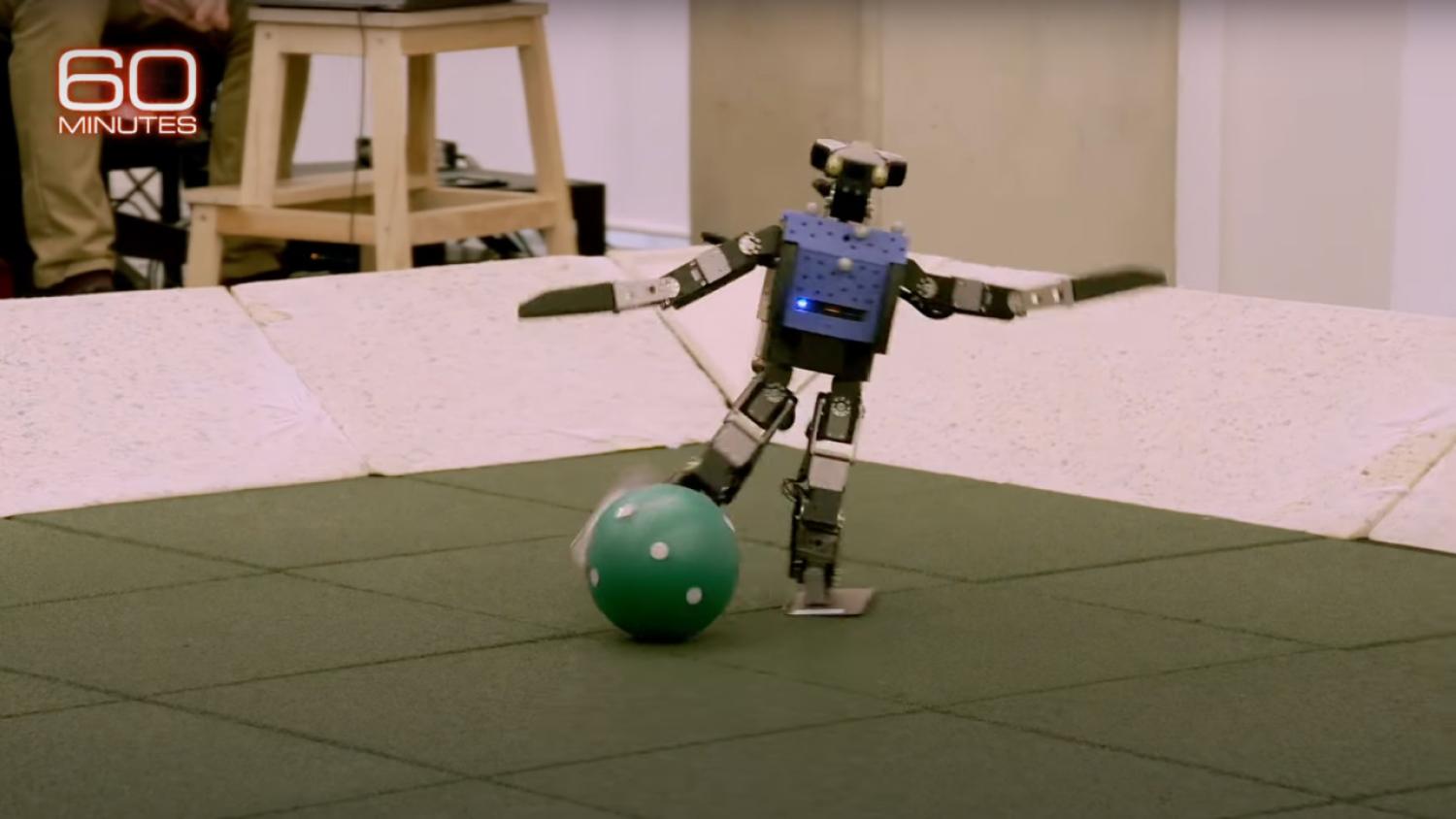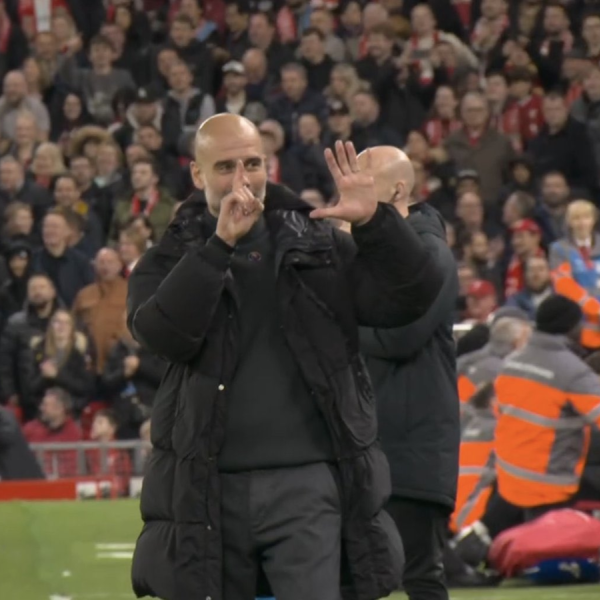On Sunday's episode of 60 Minutes, correspondent Scott Pelley visited Google's AI lab in London for a segment looking at how the company was getting robots to play soccer.
The robots weren't programmed by humans — they learned the game themselves after only being instructed to score goals. From there the AI program went about devouring motion capture technology and testing different moves for about two weeks.
Through this system of trial and error, the robots just got better and better with more practice.
The development of their own game has eerily mirrored soccer history with an evolution in passing followed by the birth of tactics. The robots are inverting the pyramid as we speak.
These robots were told one thing: score. They taught themselves to play soccer – creating their own strategies and their own ways to walk, dribble and block. https://t.co/Qafr9oLZwN pic.twitter.com/ibSXLXM1mh
— 60 Minutes (@60Minutes) April 16, 2023
"This is a lot of fun," Pelley says. "But what are the practical implications of what we're seeing here?"
"This is they type of research that can eventually lead to robots that can come out of the factories and work in other types of human environments," responds Raia Hadsell, vice president of Research and Robotics. "You know, think about mining, think about dangerous construction work or exploration or disaster recovery."
It sounds like we're really, really close to being able to purchase our own soccer-playing R2-D2, and I'm pretty excited about that. I'll obviously also be unemployed at that point with Google Bard writing these articles but you take the good with the bad, I guess.







